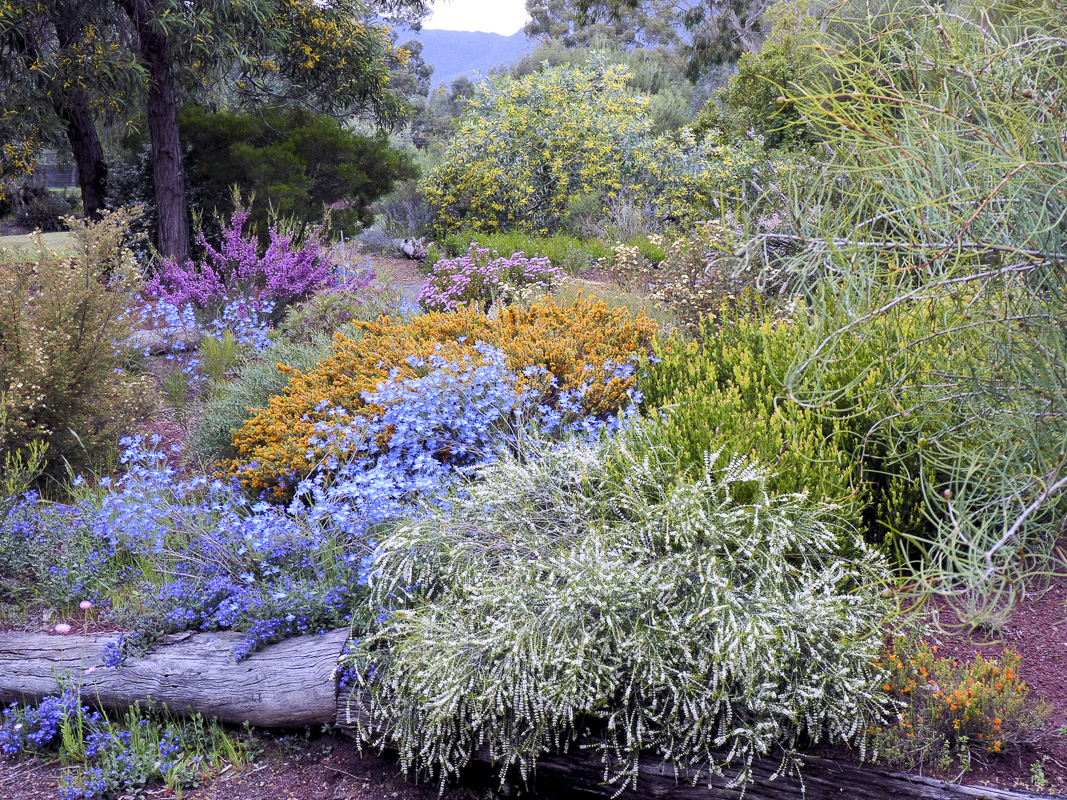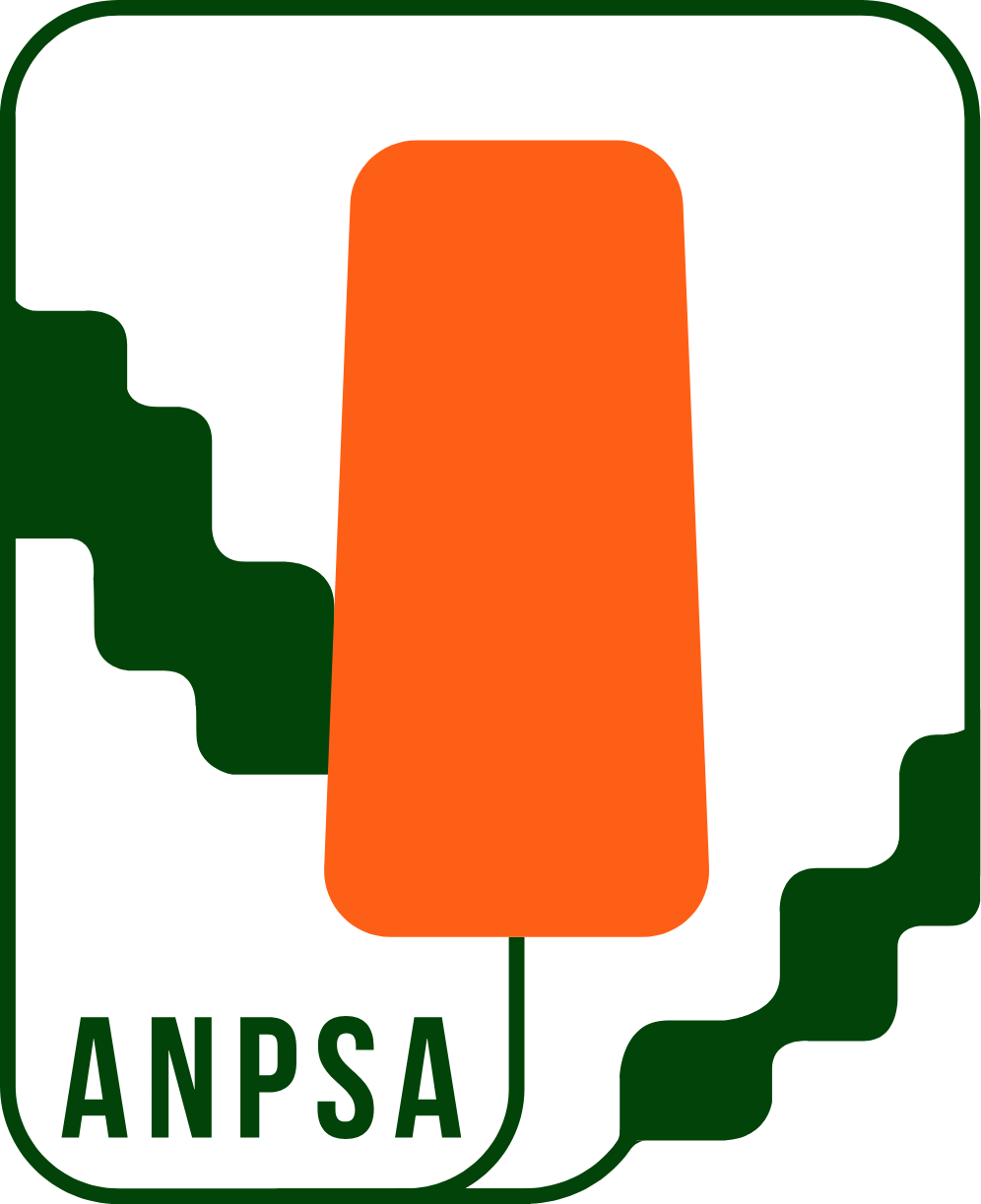The Wartook Gardens are located in the Grampians. We have progressively developed the gardens over the last 50 years. Here is a short story about our garden design and planting.

Site location and conditions
We live on the western side of the Grampians National Park where the rainfall is now down to about 550 mm per year. Iin 1973 rainfall was nearer 750 mm per year. The soils are duplex clay loams, sand areas, and some of buckshot gravel. pH is about 5.5 to 7.
From about 2m down, we hit granite which is at least 300m deep, so drainage can be a big problem.
Drains surround all 69 of our garden beds. We dig paths down to act a drains and garden beds are log edged. We mulch the garden with scoria. All drains lead to a large dam on the north side of the house and we look to the Asses Ears part of the Grampians to the south. (Editor’s note: For a YouTube video of the track to Asses Ears, see here. You can get an idea of the landscape, though I wouldnt recommend walking this track unprepared!)

Garden design approach in the Wartook Gardens
We purchased 70 acres of open farmland in 1973 and built our own home in 1974. A 100-metre square area was rabbit-proofed, to begin a garden. We began planting in 1975 with over 600 plants carted up from Melbourne. Our aim was to create a garden that would show off plants to visitors, using paths and grassed areas between beds.

In the garden we gradually created areas where we could grow a wide range of plants from all over Australia. Before too long, we extended the garden to cover the 5 acres it is today. This area has been rabbit, and kangaroo-proofed with fencing.
Over the years, water-logging, drought, storms, climate change and fires have taken their toll on the garden. All of these problems have been a tremendous learning experience for us. We feel that we can successfully grow a much greater range of plant species than we even dreamed of in the 1970’s.

With many trips to parts of eastern and western Australia, and many visits to nurseries, and to APS member’s gardens, we have sourced a large range of plants. Today we grow many species that are simply not available in most nurseries. The garden has around 2,000 species of Australian plants growing, most of which we have propagated themselves.
Growing hakeas
We started growing hakeas from seed in the late 1960’s, as Fred Rogers assured us that it was a ‘reliable’ plant’. In 1995, as Fred, Royce and Paul Kennedy all had the interest in hakeas, they planned a large seminar on the Hakea genus. This seminar became the first F.J.C. Rogers Seminar, which has since continued on a regular basis. The seminars have been responsible for greatly increasing our knowledge of Australian plants, and the availability of plants for our native gardens.
About Royce and Jeanne Raleigh
We joined the Maroondah Group of the Society for Growing Australian Plants (SGAP), as it was then known, in the 1960’s. Royce became an active propagator. Jeanne’s avid interest in native plants came later and since the late 1970s she has done most of the propagation.
We were foundation members of the Wimmera Growers of Australian Plants in 1976. Fred Rogers was President and Royce was Secretary. Royce held many roles over the years, as President, Secretary and Newsletter editor, while Jeanne was a long-time committee member. We’ve supplied plant material for Wimmera Growers many shows.
In the 1990’s Royce was State President of APS Victoria and is now an Honorary Life Member. He is currently leader of the Goodeniaceae Study group and spends time visiting various groups to talk on the many aspects of Australian plants. Jeanne has been awarded an Impressa Award for Outstanding Service to Australian Plants by APS Victoria.
 Australian Native Plants Society (Australia)
Australian Native Plants Society (Australia)